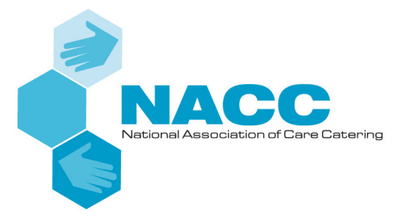The Future of Public Sector Catering - Neel Radia, National Chair, National Association of Care Catering (NACC)
September 18, 2019 - 11:36It may not be all doom and gloom, but there are still plenty of reasons why the public sector catering industry looks forward with a sense of apprehension.
As we build up to the inaugural Public Sector Catering Expo taking place in November, David Foad, editor of Public Sector Catering magazine, asked industry leaders to outline the challenges they currently face and forecast the ones still to come.
Neel Radia, National Chair, National Association of Care Catering (NACC)
The UK population is steadily ageing and will continue to do so for some time. This single important fact sets the scene for the care sector today and long into the future.
Politics and economics, for example, will absolutely play a part in bringing about change, opportunities and challenges, but our ageing population is fundamentally shaping the sector. More people are accessing care services and increased life expectancy means they will do so for longer with more complex needs and greater demands.
Projections from the Office for National Statistics (ONS) show that there are likely to be an additional 8.6m people aged 65 and over in 2066, compared to 2016 – that’s equivalent to a population roughly the size of London today.
The 85 years and over age group will grow the fastest. In mid-2016, there were 1.6m people aged 85 years and over, representing 2% of the total population. ONS forecasts that this will treble to 5.1m (7% of the total population) by 2066.
Medical advances and an understanding of the benefits of healthier lifestyles have contributed greatly to our ageing population and this is something to be celebrated. We must, however, be mindful of the pressures this puts on the care sector.
As the association representing UK care caterers, the NACC will work with our members to update, innovate and prepare them for the challenges and changes faced today and in the future.
One of our biggest challenges is the steady decline in funding for social care services. Funding has been disproportionate to the increasing demand on the sector. Since austerity was put in place by government, care caterers have shown how innovative and agile they are.
Working together, we’ve found new solutions to provide continued excellence for those in care environments. But this isn’t sustainable. The Government must invest in care services now or the sector simply won’t be able to cope with the increased demands set to come, and this can only have catastrophic consequences.
And what impact will Brexit have? This is the million-dollar question. Instability around food costs is already making managing squeezed budgets tough. In the long term, will we see a change in the way care homes source products? Will they go ‘back to basics’, with menus reflecting UK, seasonal ingredients and even those grown by the care homes themselves? Only time will tell on this one…
The ageing population brings more age-related conditions that require specialist diets and mealtime practices, such as dementia and dysphagia. The rise in demand for other specialised menus, such as vegetarian, vegan, gluten-free, diary-free and cultural or religious, is influencing care catering too.
Meeting all dietary needs, whether medical or lifestyle, safely and creatively will be an important role of the care caterer. We’re already providing training to increase knowledge and skills around these areas, from dementia dining and fortification to the new International Diet Dysphagia Standardisation Initiative (IDDSI) framework, and we fully expect that the need for this vital support will increase.
As always, funding is key, but I also think a more collaborative approach from health care and social care services is necessary. By working together, we can recognise and respond to individual nutritional needs, avoiding malnutrition and relieving the strain on all.
Good nutrition and hydration are at the centre of quality care and the important role care chefs and caterers play is now recognised. Sadly, there’s a lack of young people training to work in the care sector, and we have a skills gap. This will continue unless we can find a way to inspire young chefs into the care sector.
Is there a viable alternative to skills and knowledge? Until we find this, the NACC will continue to raise the profile of care catering as a dynamic, rewarding career through initiatives like the NACC Care Chef of the Year competition and working with industry colleagues to develop meaningful qualifications such as the Level 2 Award in Professional Cookery in Health and Social Care.
The changing expectations of the ageing population are shaping the future of care catering. Generations that have grown up with easy access to leisure, hospitality and travel want a ‘hotel-style experience’ that continues to reflect their lifestyle, including a 24/7 dining experience, tailored to each individual need with plenty of choice. We’re already seeing the change with a la carte menus in care homes and the growth of lifestyle-driven retirement living.
Traditional care homes will become a thing of the past and care catering will have to evolve to meet the changing client demands.
You can meet the NACC team at the PSC Expo in November and find out more about their work and benefits of working with them.


